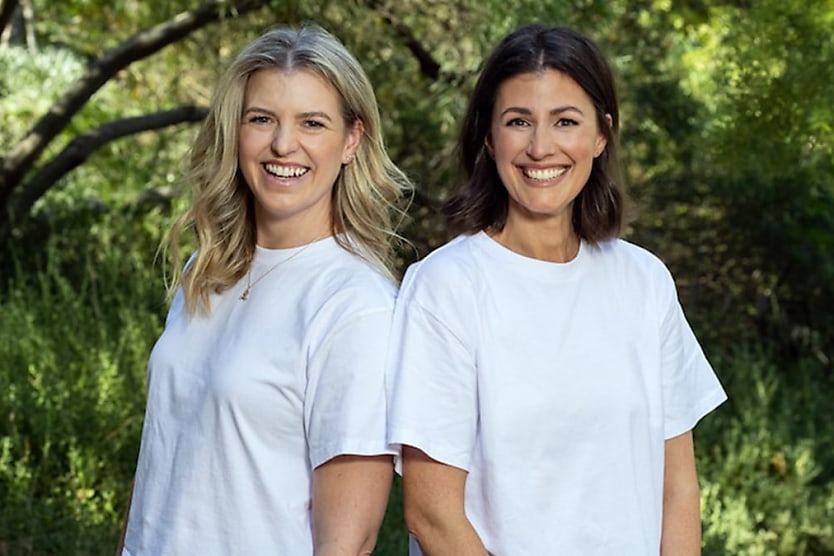Job-sharing Senate candidates to keep pushing for systemic change
SHARE THIS ARTICLE

While Bronwen Bock and Lucy Bradlow’s campaign to become Australia’s first-ever job-sharing senators did not result in them appearing on the ballot paper at the recent federal election, their experience showed them that there is significant interest from voters in having a more diverse set of politicians representing them.
In April 2024, Bock and Bradlow launched a campaign, under the Better Together Party banner, to serve as job-sharing MPs for the Victorian electorate of Higgins, to show that politics could be done differently, and – as the pair told The HR Leader Podcast last year – to ensure that Australia could have a “truly representative” democracy, and argued that job-sharing in politics can work.
When the Australian Electoral Commission (AEC) disbanded the seat of Higgins, the pair pivoted to running for a Victorian Senate seat.
In February, they filed an application to prevent the AEC from blocking their nomination to run as job-sharing candidates; however, by late March, the pair made the decision to end their campaign, once it was clear legal issues would not be resolved by the time of the federal election.
“We are nevertheless hugely proud of what we have achieved, from forming the Better Together Party to receiving a protective costs order against the Commonwealth. We could only have done this with the genuine and vocal support of the over 1,500 members of the Better Together Party who were determined to show the government that they supported a pathway for broader representation in federal Parliament,” the pair said at the time.
“We are hopeful that we can continue the legal case after the conclusion of the election. We believe that we owe it to all the amazing people who have supported us through this journey and to the people of Australia to keep challenging the status quo to build a stronger nation where everyone has a voice in shaping our future.”
In conversation with Lawyers Weekly in the wake of the recent federal election, Bock and Bradlow reflected that their campaign has proven there is “both a big appetite for a job-sharing candidate and, importantly, a huge interest in a broader, more diverse group of political candidates”.
“We saw this support in the fact that over 1,500 people joined the Better Together Party in just over two months. This showed us that people didn’t just support the idea, but were willing to take action to make it happen. We also saw it in the funds we raised to support the campaign,” they said.
“We also heard from so many people throughout the campaign who said that they didn’t see themselves represented in the candidates for Federal Parliament. They wanted more diversity, not only in terms of racial, ethnic, gender and sexual diversity, but more diversity of experience.”
“They wanted to see more people they could relate to and get behind as a candidate. They thought job-sharing was an effective way to attract a more diverse group of people.”
Job-sharing is getting more attention as a vocational prospect in the professions like law as well.
Last year, HR Leader’s sister brand, Lawyers Weekly, spoke with the co-general counsel of Wesley Mission Queensland, Tala Prowd and Helena Kolenbet, about pushing back on the ceiling for part-time lawyers. The pair then appeared on The Corporate Counsel Show to discuss how to pitch the benefits of a job-sharing arrangement and whether we may see a rise in the number of job-sharing lawyers.
History shows, Bock and Bradlow continued, that systemic change happens slowly, but it can happen.
“The campaign has shown us that there are a lot of forces pushing against system change. In retrospect, we probably didn’t expect the strength of the forces against us, but that is probably a good thing because if we had expected it, we wouldn’t have done it,” they said.
“We know that the secret to systemic change is to keep pushing. It may seem like a strange person for us to quote, but Winston Churchill said: ‘Success is stumbling from failure to failure with no loss of enthusiasm.’
“We intend to keep stumbling on and to focus on the forces that are behind us, not against us.
“One of the most encouraging things about the campaign was the high level of support we got from people in the private sector. They saw the campaign as an important, high-profile public advocacy campaign that supported their efforts to promote flexibility and job-sharing in the workplace.”
When asked what advice they would offer to other Australians who have been inspired to put themselves forward for job-sharing roles, Bock and Bradlow advised that such partnerships don’t have to be a “marriage” to be successful.
“Of all the job-share pairs we met, we were the only pair that had a long and trusted friendship before we started working together. Everyone else came together through circumstances, most commonly working in the same organisation and wanting to take a part-time role at the same time, and it worked really well,” they said.
“So, our advice would be to find someone who wants to work part-time and ask to job-share. There are a lot of resources available that spell out the benefits of job-sharing (two sets of skills and experience, two perspectives, more accountability etc.), and there are resources like Beamible that can help manage workflow.
“With the right attitude, we really believe that job-sharing can be a huge benefit to employees and employers.”
Bock and Bradlow are hopeful to continue their legal case to become Australia’s first job-sharing political candidate, following this year’s election.
“We hope that people will follow the case and our progress!” they said.
Kace O'Neill
Kace O'Neill is a Graduate Journalist for HR Leader. Kace studied Media Communications and Maori studies at the University of Otago, he has a passion for sports and storytelling.

